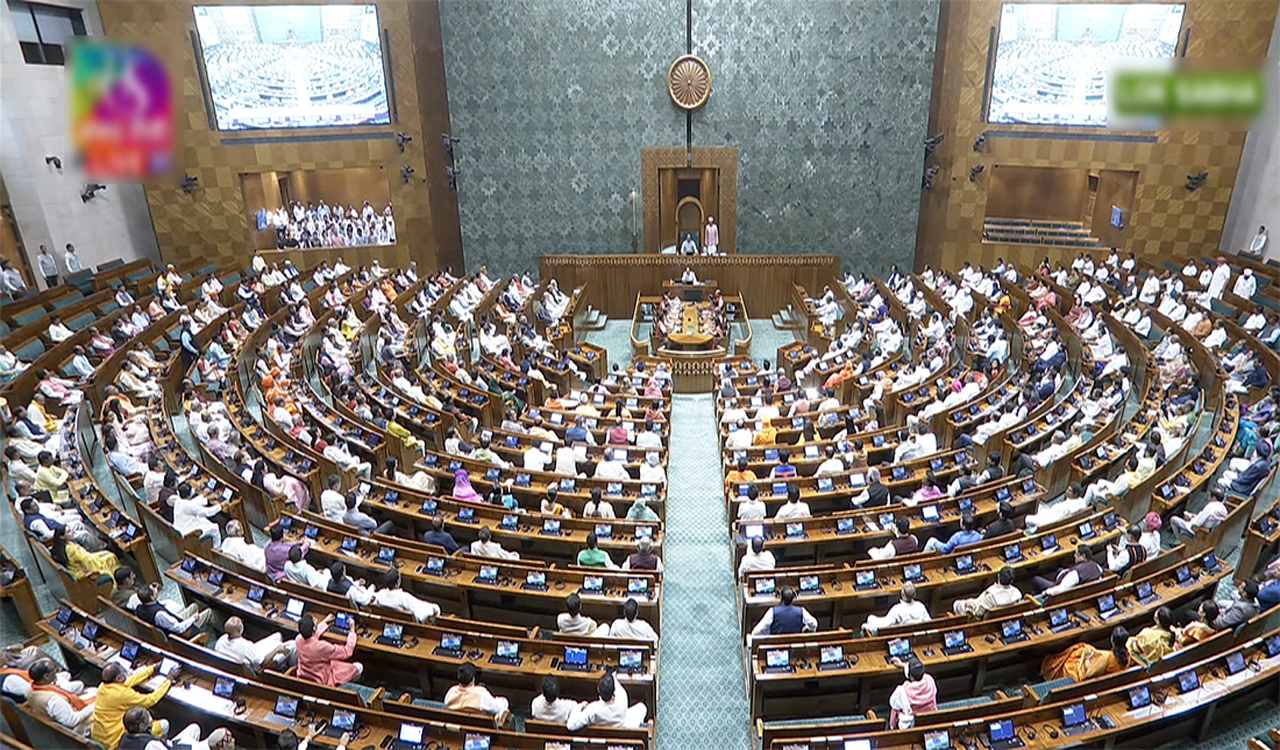Sedition by any other name sounds equally draconian in its intent and scope of application
Published Date – 11:59 PM, Fri – 22 December 23

Despite the lofty intention behind the three rechristened criminal law Bills, passed by the Lok Sabha recently, there are several concerns that remain unaddressed. The key among them is the sedition provision that makes a comeback in a new avatar, though the Centre had given an undertaking to the Supreme Court that the draconian, colonial-era law would be dropped altogether. Section 152 of the Bharatiya Nyaya Sanhita Bill, replacing the Indian Penal Code (IPC), seeks to punish perpetrators of acts ‘endangering sovereignty, unity and integrity of India’. Though the renamed legislation removes the words “disaffection towards the Government established by law in India” from the old Section 124A of the IPC, it actually amounts to expanding the definition of what constitutes sedition and giving it a new nomenclature. It is incongruous for a liberal and free democratic country to have a sedition law in any form and nomenclature that fights its own citizens. Sedition by any other name sounds equally draconian in its intent and scope of application. The Centre has claimed that the replacement of the old laws was part of an overhaul of the criminal justice system two decades after the Justice VS Malimath Committee on Reforms of Criminal Justice System submitted its report to the Home Ministry. The wording of the relevant sections in the Bharatiya Nyaya Sanhita raises apprehensions that the essence of sedition may persist under a new guise. By making any Act endangering the sovereignty or unity and integrity of India an offence, the new law seeks to take within its sweep almost everything, including a speech, a book or an article, a drama or an act, that Section 124A of the IPC currently penalises as sedition.
In May last year, the apex court put on hold trial in all sedition cases pending before courts across the country until the government completes its promised exercise to re-examine and re-consider the provisions of the offence of sedition, originally formulated by the British rulers to suppress the freedom struggle. It had also directed that all those in jail on sedition charges could approach the court for bail. Overall, the current makeover exercise has some laudable objectives. The Bharatiya Nyaya Sanhita Bill, which replaces the IPC of 1860, the Bharatiya Nagarik Suraksha Sanhita takes the place of the CrPC of 1973 and the Bharatiya Sakshya Bill substitutes for the Indian Evidence Act of 1872. Some of the newly-incorporated provisions are worth mentioning. They include decriminalisation of certain offences in the light of changing sociocultural mores. Taking adultery, homosexual sex and attempt to suicide out of the new code is a progressive step. Equally vital is defining mob lynching, which has shockingly become commonplace in recent years, as a crime. Also welcome are the specific timelines prescribed for FIRs, investigations and the use of forensic methods and information technology in policing.




